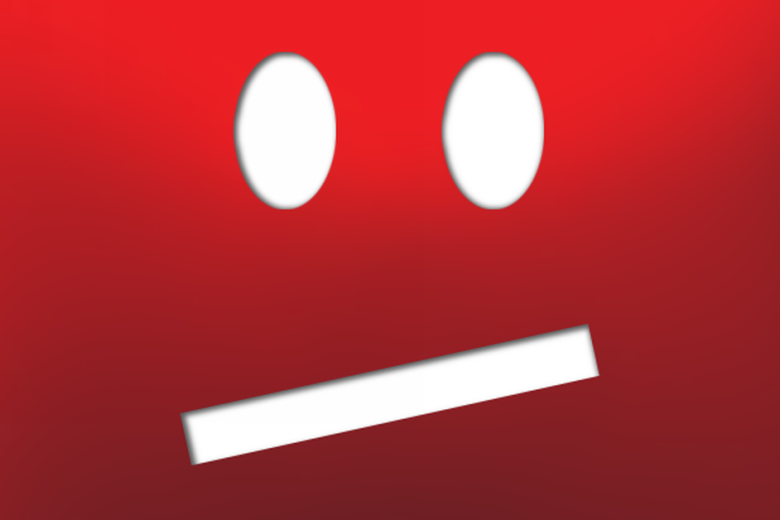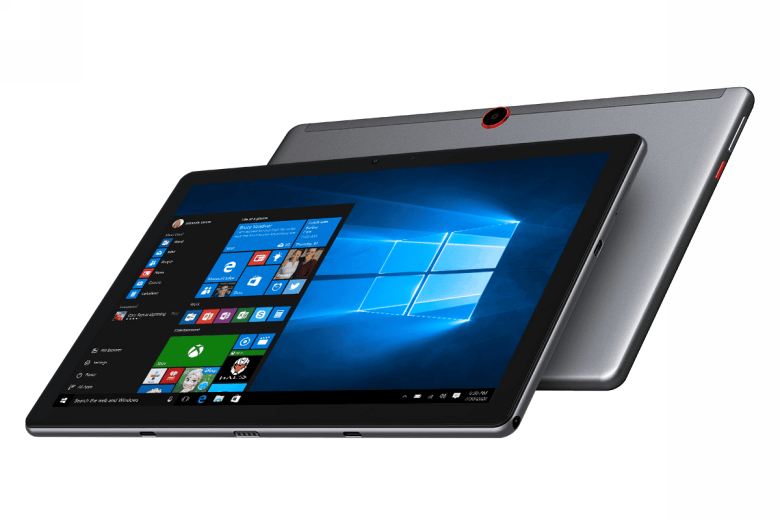The AI Drake monitor that mysteriously went viral over the weekend is the beginning of an issue that may upend Google in a technique or one other — and it’s actually not clear which method it would go.
Right here’s the fundamentals: there’s a brand new monitor referred to as “Coronary heart on My Sleeve” by a TikTok consumer referred to as @ghostwriter877 with AI-generated vocals that sound like Drake and The Weeknd. The music mysteriously blew up out of nowhere over the weekend, which, nicely, is fishy for numerous causes.
After the music went viral on TikTok, a full model was launched on music streaming companies like Apple Music and Spotify, and on YouTube. This prompted Drake and The Weeknd’s label Common Music Group to difficulty a sternly-worded assertion in regards to the risks of AI, which particularly says that utilizing generative AI infringes its copyrights. Right here’s that assertion, from UMG senior vice chairman of communications James Murtagh-Hopkins:
UMG’s success has been, partially, on account of embracing new expertise and placing it to work for our artists–as we now have been doing with our personal innovation round AI for a while already. With that mentioned, nonetheless, the coaching of generative AI utilizing our artists’ music (which represents each a breach of our agreements and a violation of copyright regulation) in addition to the supply of infringing content material created with generative AI on DSPs, begs the query as to which facet of historical past all stakeholders within the music ecosystem need to be on: the facet of artists, followers and human inventive expression, or on the facet of deep fakes, fraud and denying artists their due compensation.
These situations exhibit why platforms have a elementary authorized and moral accountability to forestall the usage of their companies in ways in which hurt artists. We’re inspired by the engagement of our platform companions on these points–as they acknowledge they should be a part of the answer.
What occurred subsequent is a bit mysterious. The monitor got here down from streamers like Apple Music and Spotify that are in tight management of their libraries and might pull tracks for any cause, nevertheless it remained accessible on YouTube and TikTok, that are user-generated content material platforms with established DMCA takedown processes. I’m instructed by a single supply acquainted with the state of affairs that UMG didn’t truly difficulty takedowns to the music streamers, and the streaming companies to this point haven’t mentioned something to the trade commerce publications. Neither has Drake or The Weeknd. It’s bizarre – it does appear like Ghostwriter977 pulled the monitor themselves to create hype, particularly whereas the music remained on YouTube and TikTok.
However then TikTok and YouTube additionally pulled the monitor. And YouTube, particularly, pulled it with an announcement that it was eliminated on account of a copyright discover from UMG. And this is the place it will get fascinatingly weedsy and possibly existentially tough for Google: to difficulty a copyright takedown to YouTube, that you must have… a copyright on one thing. Since “Coronary heart on my Sleeve” is an authentic music, UMG doesn’t personal it — it’s not a duplicate of any music within the label’s catalog.
So what did UMG declare? I’ve been instructed that the label considers the Metro Boomin producer tag in the beginning of the music to be an unauthorized pattern, and that the DMCA takedown discover was issued particularly about that pattern and that pattern alone. It’s not clear if that tag is definitely a pattern or itself AI-generated, however YouTube, for its half, doesn’t appear to need to push the dialogue a lot additional.
“We eliminated the video after receiving a legitimate copyright notification for a pattern included within the video,” is what YouTube spokesperson Jack Malon says in regards to the state of affairs. “Whether or not or not the video was generated utilizing synthetic intelligence doesn’t affect our obligation to supply a pathway for rightsholders to take away content material that allegedly infringes their copyrighted expression.”
UMG has adopted up by issuing particular person URL-by-URL takedowns to YouTube as copies of the music pop up, all primarily based on the Metro Boomin tag — I’m instructed by one other music trade supply that the corporate can’t actually use YouTube’s automated ContentID system as a result of, once more, it doesn’t personal the music and might’t declare it for that system to start matching it. (Oddly, Ghostwriter977 reuploaded the monitor to their YouTube web page after the primary takedown, and it’s… nonetheless there. Once more, there’s plenty of fishy stuff happening right here.)
If Ghostwriter977 uploads “Coronary heart on my Sleeve” with out that Metro Boomin tag, they may kick off a copyright battle that pits the way forward for Google towards the way forward for YouTube
Received all that? Okay, now right here’s the issue: if Ghostwriter977 merely uploads “Coronary heart on my Sleeve” with out that Metro Boomin tag, they may kick off a copyright battle that pits the way forward for Google towards the way forward for YouTube in a probably zero-sum method. Google will both need to kneecap all of its generative AI initiatives, together with Bard and the way forward for search, or piss off main YouTube companions like Common Music, Drake, and The Weeknd. Let’s stroll by it.
The primary authorized drawback with utilizing AI to make a music with vocals that sound like they’re from Drake is that the ultimate product isn’t a duplicate of something. Copyright regulation may be very a lot primarily based on the thought of creating copies — a pattern is a duplicate, as is an interpolation of a melody. Music copyright particularly has been getting aggressively expansive within the streaming age, nevertheless it’s nonetheless all primarily based on copies of precise songs. Pretend Drake isn’t a duplicate of any music within the Drake catalog, so there’s simply no dead-ahead copyright declare to make. There’s no copy.
As an alternative, UMG and Getty Pictures and publishers around the globe are claiming that amassing all of the coaching knowledge for the AI is copyright infringement: that ingesting Drake’s complete catalog, or each Getty picture, or the contents of each Wall Avenue Journal article (or no matter) to coach an AI to make extra images or Drake songs or information articles is unauthorized copying. That may make the pretend Drake songs created by that AI unauthorized “by-product works,” and, phew, we’re nonetheless squarely within the realm of copyright regulation that everybody understands. (Or, nicely, pretends to grasp.)
The issue is that Google, Microsoft, StabilityAI, and each different AI firm are all claiming that these coaching copies are truthful use — and by “truthful” they don’t imply “truthful as decided by an argument in an web feedback part,” however “truthful” as in “truthful as decided by a court docket on a case-by-case utility of 17 United States Code §107 which lays out a four-factor check for truthful use that’s as contentious and unpredictable as something in American political life.”
I requested Microsoft CEO Satya Nadella about this once I talked to him in regards to the new ChatGPT-powered Bing, and he wasn’t shy about it. “Look, on the finish of the day, search is about truthful use,” he mentioned. “In different places, once more, it’ll need to be actually thought by as to what’s the truthful use. After which typically, I believe there’ll be some authorized instances that will even need to create precedent. “
That’s as a result of there isn’t any precise precedent for saying that scraping knowledge to coach an AI is truthful use; all of those firms are counting on historic web regulation instances that allowed search engines like google and yahoo and social media platforms to exist within the first place. It’s messy, and it appears like all of these selections are up for grabs in what guarantees to be a decade of litigation.
So now think about that you’re Google, which on the one hand operates YouTube, and alternatively is racing to construct generative AI merchandise like Bard, which is… educated by scraping tons of information from the web beneath a permissive interpretation of truthful use that may positively get challenged in a wave of lawsuits. AI Drake comes alongside, and Common Music Group, one of many largest labels on the earth, releases a strongly worded assertion about generative AI and the way its streaming companions must respect its copyrights and artists. What do you do?
- If Google agrees with Common that AI-generated music is an impermissible by-product work primarily based on the unauthorized copying of coaching knowledge, and that YouTube ought to pull down songs that labels flag for sounding like their artists, it undercuts its personal truthful use argument for Bard and each different generative AI product it makes — it undercuts the way forward for the corporate itself.
- If Google disagrees with Common and says AI-generated music ought to keep up as a result of merely coaching an AI with current works is truthful use, it protects its personal AI efforts and the way forward for the corporate, however in all probability triggers a bunch of future lawsuits from Common and probably different labels, and positively dangers dropping entry to Common’s music on YouTube, which places YouTube in danger.
I requested Google’s Malon about this dilemma, and he mentioned “it’s less than YouTube to find out who ‘owns the rights’ to content material. That is between the events concerned, and is why we give copyright holders instruments to make copyright claims and uploaders instruments to dispute claims they imagine are made incorrectly. Issues that can not be resolved by our dispute course of might finally should be determined by a court docket.”
YouTube solely continues to exist due to a fragile dance that retains rightsholders completely satisfied, however the way forward for Google is a wager on an expansive interpretation of copyright regulation
That’s the thought, however copyright claims on YouTube have been messy and contentious earlier than the AI explosion, and now there’s principally no method for Google to keep away from some main litigation right here.
YouTube solely continues to exist due to a fragile dance that retains rightsholders completely satisfied and the music trade paid, however the way forward for Google itself is a wager on an expansive interpretation of copyright regulation that each inventive trade from music to films to information hates and can battle to the dying. As a result of it is dying: generative AI instruments promise to utterly upend the marketplace for nearly all commodity inventive work, and these firms usually are not required to sit down again and let it occur.
The distinction right here is that the final time this form of factor occurred, Google and YouTube have been disruptive upstarts with killer merchandise and little to lose, they usually accepted the litigation from Viacom and everybody else as the price of successful. Now, they’re… nicely, YouTube is actually a cable firm. And navigating the thorny world of content material partnerships whereas chasing after AI startups who’re a lot freer to interrupt issues will pressure Google to make nearly unattainable selections at each flip.













